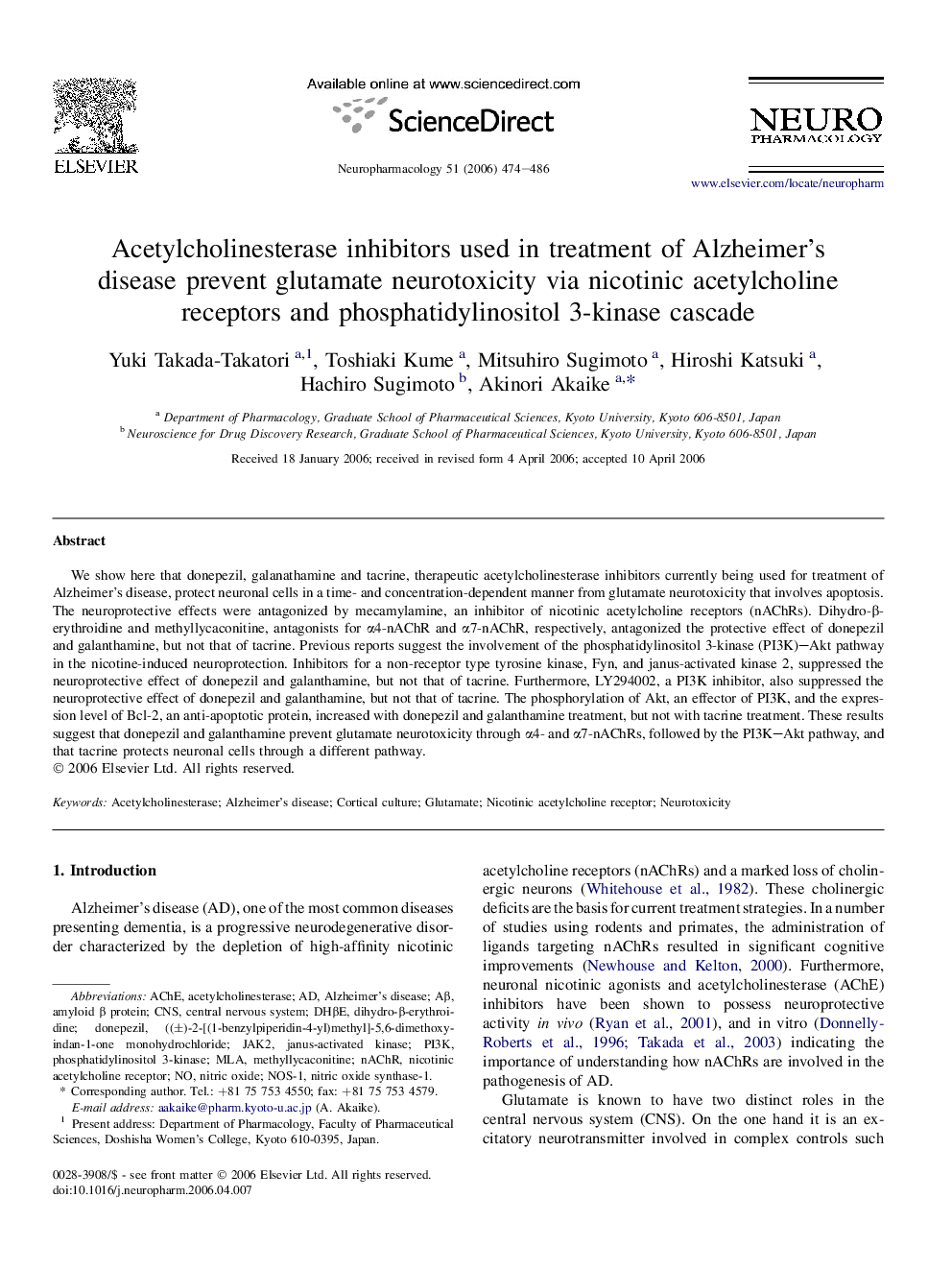| Article ID | Journal | Published Year | Pages | File Type |
|---|---|---|---|---|
| 2495352 | Neuropharmacology | 2006 | 13 Pages |
We show here that donepezil, galanathamine and tacrine, therapeutic acetylcholinesterase inhibitors currently being used for treatment of Alzheimer's disease, protect neuronal cells in a time- and concentration-dependent manner from glutamate neurotoxicity that involves apoptosis. The neuroprotective effects were antagonized by mecamylamine, an inhibitor of nicotinic acetylcholine receptors (nAChRs). Dihydro-β-erythroidine and methyllycaconitine, antagonists for α4-nAChR and α7-nAChR, respectively, antagonized the protective effect of donepezil and galanthamine, but not that of tacrine. Previous reports suggest the involvement of the phosphatidylinositol 3-kinase (PI3K)–Akt pathway in the nicotine-induced neuroprotection. Inhibitors for a non-receptor type tyrosine kinase, Fyn, and janus-activated kinase 2, suppressed the neuroprotective effect of donepezil and galanthamine, but not that of tacrine. Furthermore, LY294002, a PI3K inhibitor, also suppressed the neuroprotective effect of donepezil and galanthamine, but not that of tacrine. The phosphorylation of Akt, an effector of PI3K, and the expression level of Bcl-2, an anti-apoptotic protein, increased with donepezil and galanthamine treatment, but not with tacrine treatment. These results suggest that donepezil and galanthamine prevent glutamate neurotoxicity through α4- and α7-nAChRs, followed by the PI3K–Akt pathway, and that tacrine protects neuronal cells through a different pathway.
